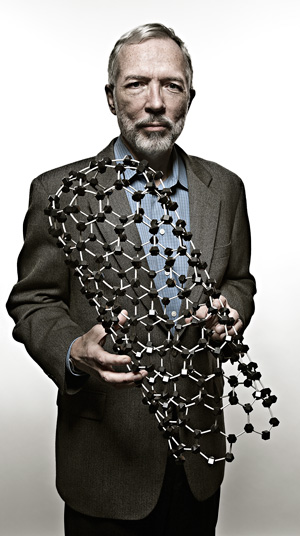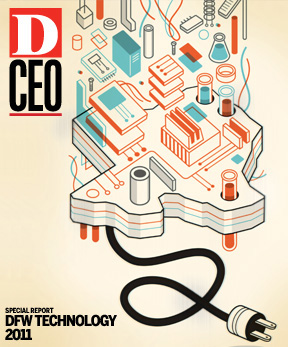Since selling his first company for $100 million in the mid-1990s, Jim Von Ehr, president and founder of Richardson’s Zyvex Labs, has been investing big time in a very small field: nanotechnology.
How did you become interested in technology?
The spark happened when I was a kid growing up in Michigan. I was visiting my grandmother, and one of her neighbors was a ham radio operator. He had all sorts of tubes and parts and ham radio magazines, and I was fascinated. I was probably about 7 years old at the time. I still have some of those vacuum tubes he gave me. After high school, I went to Michigan State University, starting out as a physics major then switching to computer science. After I graduated, I came to Texas to work for TI.
How long were you at Texas Instruments?
Eleven years. It was a good experience, but I left because my boss was a mainframe guy and I was a workstation guy. I argued with him all the time. I have to say his devotion to mainframes was the best thing that ever happened to me, because it got me to do my own thing.
You launched Altsys in 1984 and sold it in 1995. And since then, you’ve focused on nanotechnology, establishing the University of Texas at Dallas NanoTech Institute and funding the Zyvex Labs companies.
Some people who have success give money to charities or homeless shelters. I wanted a higher leverage. So the bulk of my money is going to this new technology that is going to change the world.
What’s the greatest challenge you face?
We seem to be in a situation where the people with the skills don’t believe in the vision, and the people who get it don’t have the skills. A chemist believes everything has to be done in solutions, by sprinkling in the right catalysts. Biologists say biology is the only way to do it. Neither of them really get that you have to have software in the middle of the process to get the right economics.
And then you have those who oppose it.
I tell people who are fearful of nanotechnology, “Look out your window at a tree. Are you afraid of that tree? It’s a molecular manufacturing plant. It’s self-replicating; it can grow another tree. But it’s solar-powered and nice to look at.” An acorn rearranges the molecules of dirt, water, and air to make wood—at no cost. And wood is an incredibly complex nano-composite material. It’s very high-performance. We have used it since the dawn of humanity.
You say that nanotechnology could revolutionize manufacturing. How?
The way we make things now is kind of like a sculpture. We start with a block, and we carve away at anything that isn’t what we want. With advanced nano, we think that we’ll have an additive approach where we build up from molecules. So it gets cheaper and cheaper to make the products because we get better at building the factory, and the factory itself gets cheaper because it directly uses the products that we make. It’s a virtuous cycle; each thing is getting better and cheaper.







